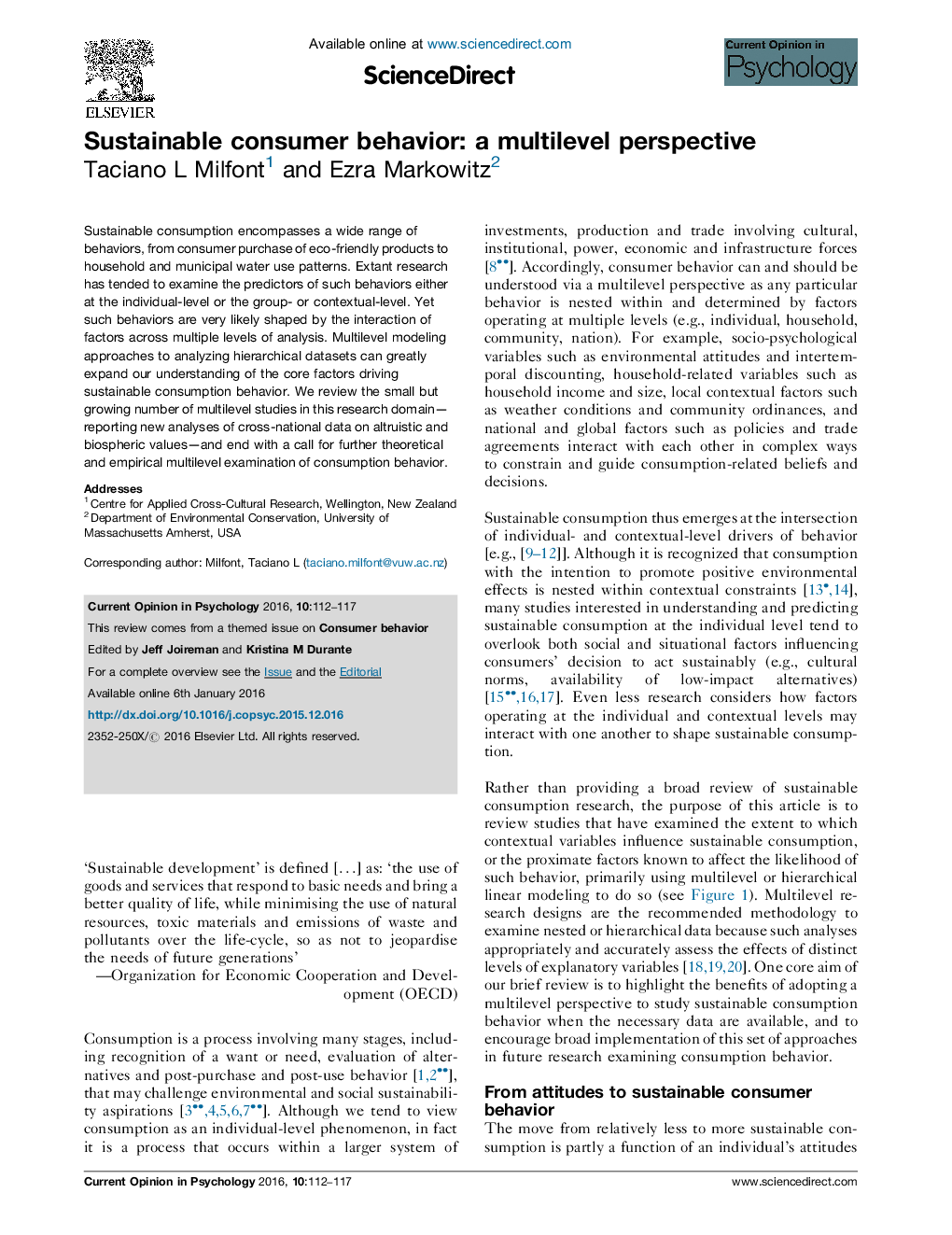| Article ID | Journal | Published Year | Pages | File Type |
|---|---|---|---|---|
| 879286 | Current Opinion in Psychology | 2016 | 6 Pages |
•Sustainable consumption is a process occurring within larger systems.•Multilevel modeling identifies drivers of sustainable consumption at distinct levels.•Values, attitudes, income and education are key predictors at the individual-level.•Post-materialist values and national wealth are key predictors at the country-level.•Predictors at distinct levels also interact to shape sustainable consumption.
Sustainable consumption encompasses a wide range of behaviors, from consumer purchase of eco-friendly products to household and municipal water use patterns. Extant research has tended to examine the predictors of such behaviors either at the individual-level or the group- or contextual-level. Yet such behaviors are very likely shaped by the interaction of factors across multiple levels of analysis. Multilevel modeling approaches to analyzing hierarchical datasets can greatly expand our understanding of the core factors driving sustainable consumption behavior. We review the small but growing number of multilevel studies in this research domain—reporting new analyses of cross-national data on altruistic and biospheric values—and end with a call for further theoretical and empirical multilevel examination of consumption behavior.
